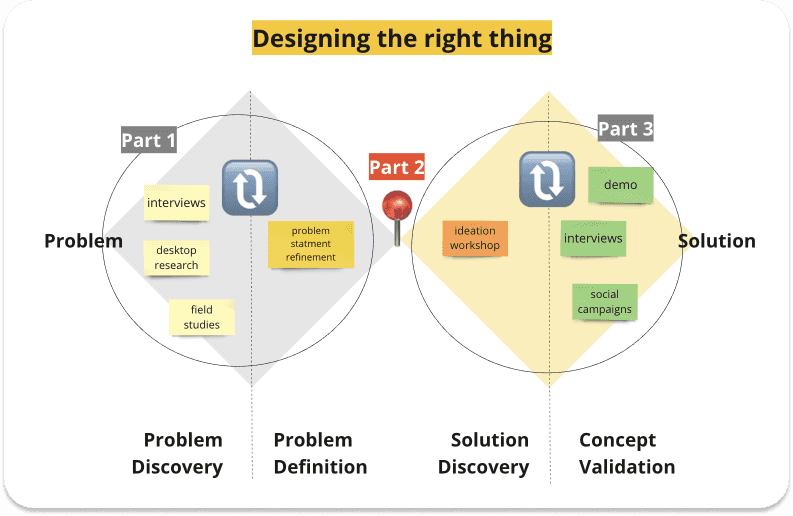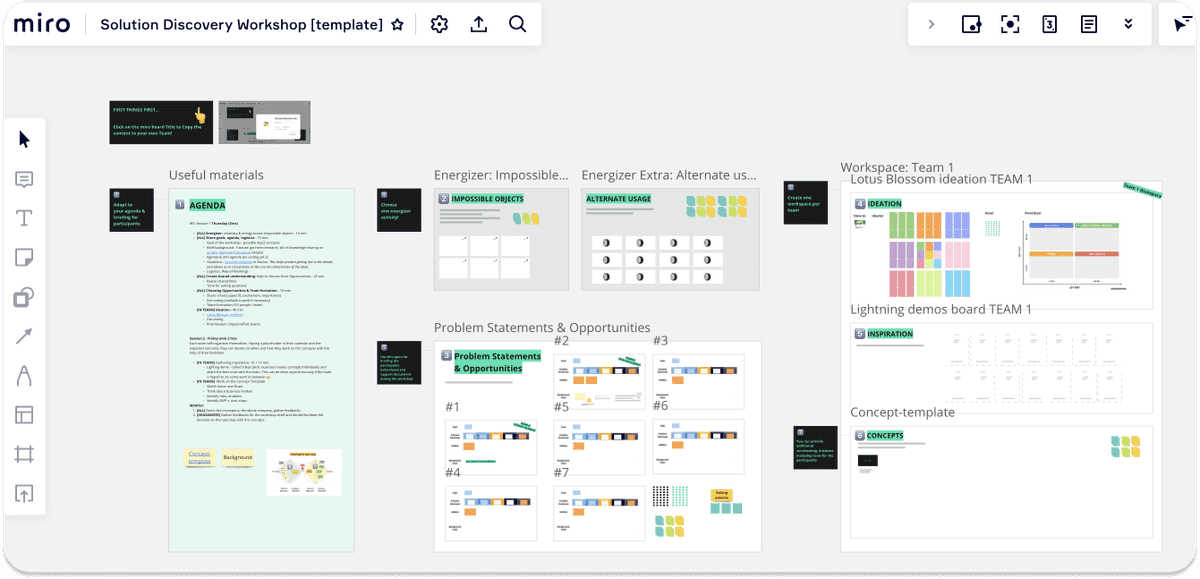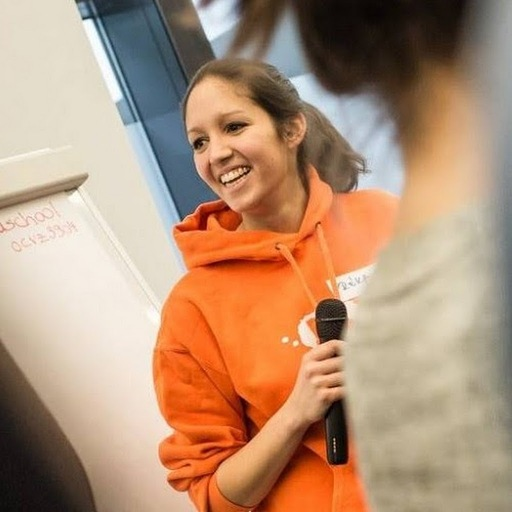Demystifying Product Discovery - Part2: Your ultimate guide to prepare for co-creation
In our previous blogpost we covered the process of problem discovery. Building on that, this article aims to equip you with tools to facilitate effective and enjoyable workshops, actively involving your entire team. Because discovery is not a one-man-show.
Co-creating ideas
At this point we had our research-based problem statements, and the goal was to come up with solutions for these, that we might develop further as an internal, #p23 project. While it’s crucial to empathise with and learn about our potential target market via interviews, it’s equally important to try things out, show and test early concepts. It was time for us to move on to generating solutions and testing those on the market.

Recognising the value of diverse perspectives, and engaged team, we aimed to get team members involved with varied backgrounds to the solution discovery phase.
But before the workshop, we needed to do some preparation work. This is my recipe:
Workshop prepping
- You need bright minds: Get people excited about a project, so they are happy to participate: use teasers on Slack, convince the ‘influencers’ within the company, make it a competition with a fun prize at the end, generate noice - show the company what you did after, on an internal demo.
- You need everyone on the same page: Provide research inputs to participants in a concise manner. Give them just enough information, that they will be able to process asynchronously, before the workshop.
- You need opportunities: Turn problem statements into opportunities to help the idea generation with the help of ‘How might we’ questions.
- You need time: Overcome the challenge of finding suitable time slots by just counting with the already engaged participants. We have Apex Friday, a designated day each month for learning, personal projects, and other activities. Using this time for the workshop was a pretty straightforward decision for us.
- You need facilitator(s): That’s gonna be you most probably, however you might need peers. Prepare them beforehand with a quick walk-through. We needed one facilitator/ team to keep them on track & ask the good questions.
- You might need fall-back plans: if you’re like me, whose motto is hope for the best, prepare for the worst, you’ll think about plan Bs, like I did: what if not everyone can make it in person last minute (Miro boards), less people can join or the energizer doesn’t work.
- You need an agenda: Plan the workshop agenda, gather necessary resources, create templates, and prepare for facilitation, considering various scenarios such as hybrid, online, or in-person formats. Share the necessary parts with the participants in advance.
In the end, here’s how our agenda shaped up. Feel free to use it as a foundation for your own workshop, along with our Miro template. ⤵️

Before the Workshop
- [ALL] Familiarise with Problem Statements/Opportunities, backed up with research insights (at least 2 days before the workshop)
During the Workshop
Session 1 - Thursday (2 hrs)
Hopefully everyone makes it in-person, but if not hybrid/remote works equally well.
- [ALL] Energiser: creativity & energy boost: Impossible objects - 10 min
- [ALL] Share goals, agenda, logistics - 15 min
- Goal of the workshop - possible #p23 concepts
- Brief background - how we got here (research, bit of knowledge-sharing on double-diamond framework details)
- Agenda & anti-agenda (no coding yet ;))
- Guideline - Concept template in Notion. This helps prevent getting lost in the details and allows us to concentrate on the crucial cornerstones of the ideas.
- Logistics, Way-of-Workings
- [ALL] Create shared understanding: help to choose from Opportunities - 25 min
- Revise shared Miro
- Time for asking questions
- [ALL] Choosing Opportunities & Team-formation - 10 min
- Share criteria (apex fit, excitement, importance)
- Dot-voting (multiple rounds if necessary)
- Team-formation (3-5 people / team)
- [IN TEAMS] Ideation - 40 min
- Lotus Blossom method
- Dot-voting
- Prioritisation: Impact/effort matrix
Session 2 - Friday (min 2 hrs)
Each team self-organises themselves. Having a placeholder in their calendar and the expected outcome, they can decide on when and how they work on the concepts with the help of their facilitator.
- [IN TEAMS] Gathering inspiration: 15 + 15 min (optional)
- Lighting demo - collect ideas (tech, business model, concept) individually and share the best ones with the team. This can be done asynchronously if the team is hyped to do some work in-between 🙂
- [IN TEAMS] Work on the Concept Template
- Sketch basic user flows
- Think about business models
- Identify risks, enablers
- Define MVP-s, next steps
After the Workshop
- [ALL] Demo the concepts to the whole company, gather feedbacks
- [ORGANISERS] Gather feedbacks for the workshop itself and decide/facilitate the decision on the next step with the concepts.
Curious how it turned out? Keep an eye out for Part 3, where I’ll unveil the story of the workshop, complete with insights, learnings, and feedback from the participants. In the meantime, if you decide to implement these practices in your own work, we would love to hear about your experiences and insights!

Are you interested in working with us?


